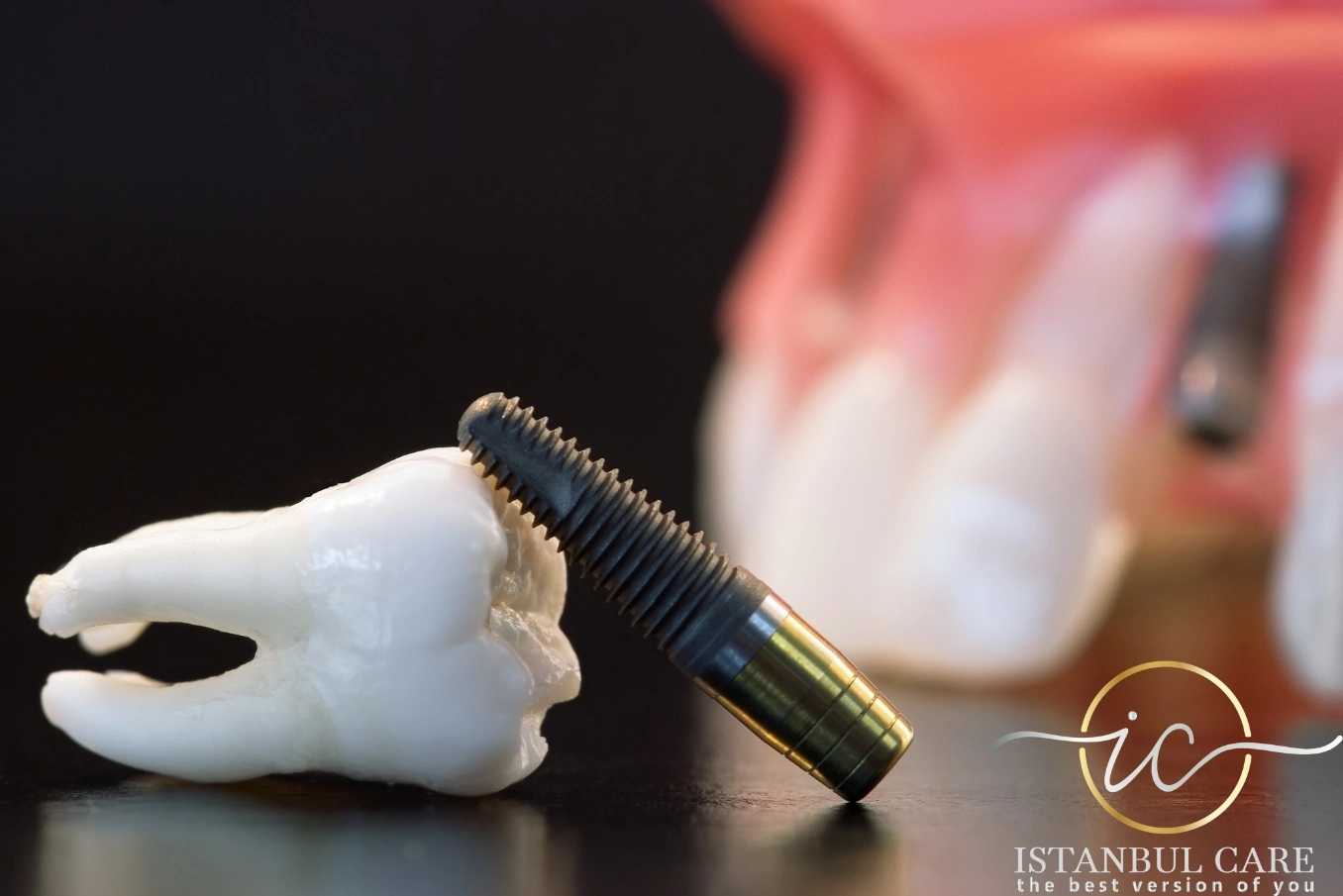When it comes to dental implant treatments, Turkey has become a global hotspot. With its high-quality care, affordable prices, and beautiful surroundings, many people are choosing Turkey for their dental needs. In this guide, we'll explore why Turkey is a top destination for dental implants, what the treatment involves, and how to choose the best clinic for your needs.
Why Choose Turkey for Implant Treatment
- High-Quality Care: Turkey is renowned for its state-of-the-art dental clinics equipped with the latest technology. Turkish dentists are highly skilled and often trained in the best institutions around the world.
- Affordable Prices: Dental implant treatment in Turkey is significantly more affordable compared to many Western countries. This cost-effectiveness doesn't compromise quality, making it an attractive option for many.
- Beautiful Destination: Moreover, combining dental treatment with a holiday is a unique advantage. Turkey offers rich cultural experiences, beautiful beaches, and historical sites, making your dental journey pleasant and memorable.
The Implant Treatment Process
- Initial Consultation: Firstly, your journey begins with a thorough consultation. The dentist will assess your dental health, discuss your goals, and create a personalized treatment plan.
- Pre-Treatment Preparations: Before the implant procedure, any necessary preparatory work, such as tooth extractions or bone grafting, will be completed.
- Implant Placement: During the procedure, titanium posts are surgically placed into your jawbone, acting as artificial roots for your new teeth.
- Healing Period: After the implants are placed, a healing period of several months is required. This allows the implants to integrate with the bone.
- Abutment Placement: Once healing is complete, abutments are attached to the implants, serving as the connection between the implants and the crowns.
- Crown Placement: Finally, custom-made crowns are placed on the abutments, completing your new smile.
Choosing the Right Clinic
- Research and Reviews: Look for clinics with excellent reviews and testimonials. Patient experiences can provide valuable insights into the quality of care.
- Credentials and Experience: Ensure the clinic and dentists are accredited and have extensive experience in implant treatments.
- Technology and Facilities: Choose a clinic that uses the latest technology and adheres to international standards for hygiene and patient care.
- Aftercare Services: Lastly, good aftercare is crucial for the success of your implant treatment. Opt for clinics that offer comprehensive follow-up services.
Turkey implant treatment offers a perfect blend of quality, affordability, and a pleasant travel experience. By choosing the right clinic and understanding the process, you can achieve a beautiful, lasting smile. If you're considering dental implants, Turkey might be the ideal destination for you.
Dental implants are one of the most effective and long-lasting solutions for replacing missing teeth. In recent years, Turkey implant treatment has gained global attention for its affordability, quality, and successful outcomes. Patients from around the world are choosing Turkey for professional dental care combined with a cost-effective experience.
What Are Dental Implants?
Dental implants are titanium posts surgically placed into the jawbone to act as artificial tooth roots. Once healed, they support crowns, bridges, or dentures, offering a strong and natural-looking result.
The Dental Implant Process in Turkey
The treatment is typically completed in two visits over a few months:
1. Consultation and Planning
- Digital X-rays and 3D imaging are used to assess your oral health.
- A personalized treatment plan is prepared, considering jawbone density and tooth alignment.
2. Implant Placement (First Visit)
- Under local anesthesia, titanium implants are inserted into the jawbone.
- A healing period of 3 to 6 months allows the implant to fuse with the bone (osseointegration).
- Temporary teeth may be provided during this time.
3. Final Restoration (Second Visit)
- Once healing is complete, abutments and permanent crowns or bridges are attached.
- The result is a natural-looking, fully functional smile.
Benefits of Getting Implants in Turkey
✔ Cost-Effective: Implant treatment in Turkey is up to 70% more affordable than in the UK or USA.
✔ High-Quality Materials: Clinics use globally recognized brands like Straumann, Nobel Biocare, and Osstem.
✔ Experienced Specialists: Dentists are trained in implantology with years of international experience.
✔ Modern Clinics: Equipped with digital technology, 3D imaging, and strict hygiene standards.
✔ Medical Tourism Packages: Many clinics offer packages that include accommodation, transfers, and aftercare.
Who Is a Good Candidate for Implant Treatment?
You may be suitable for implants if you:
- Have one or more missing teeth
- Want a permanent and stable solution
- Have healthy gums and sufficient bone volume
- Are a non-smoker or willing to stop smoking during healing
Final Thoughts
Turkey implant treatment offers a world-class dental solution for patients seeking durability, aesthetics, and affordability. With modern clinics, skilled professionals, and all-inclusive treatment plans, Turkey is a top choice for restoring your smile with confidence and long-term comfort.
We’re ready to answer your questions
The dental implant procedure in Turkey typically involves the following steps:
-
Initial Consultation: A comprehensive dental examination and imaging to assess the jawbone's health.
-
Implant Placement: An incision is made to open the gum and expose the bone. Using an electric drill, a hole is created into the bone where the metal post of the dental implant will be implanted, serving as the tooth root.
-
Healing Period: After placement, the bone needs time to heal and integrate with the implant, which can take several months.
-
Abutment Placement and Crown Attachment: Once healed, a dental implant abutment, which is a small tool that connects the implant to the restoration, will be attached. The new restorations will be temporarily placed on the implants.
Opting for dental implants in Turkey offers several advantages:
-
Cost-Effective Treatments: Turkey provides high-quality dental care at more affordable prices compared to many Western countries.
-
Experienced Professionals: The country has a well-established dental education system with reputable dental schools, ensuring that dentists undergo rigorous training and education to obtain their qualifications.
-
Comprehensive Packages: Many clinics offer packages that include treatment, accommodation, and transportation, providing convenience for international patients.
The dental implant procedure typically requires two visits to Turkey:
-
First Visit (Approximately 5 Days): Implant placement surgery.
-
Healing Period (3-6 Months): Allowing the implant to integrate with the jawbone.
-
Second Visit (Approximately 10 Days): Placement of the final crown or prosthesis.
Yes, dental implant procedures in Turkey are generally considered safe and reliable. The country has numerous reputable clinics offering high-quality treatments that adhere to international standards and protocols.
Turkey offers various types of dental implants, including:
-
Endosteal Implants: The most common type, surgically placed into the jawbone.
-
Subperiosteal Implants: Placed under the gum but above the jawbone, suitable for patients with insufficient bone height.
-
All-on-4 Implants: A technique where 'all' teeth are supported 'on four' dental implants, providing a full-arch restoration.
Dental implants offer several benefits over traditional tooth replacement options:
-
Improved Chewing Ability: They restore bite force, allowing patients to chew food effectively.
-
Enhanced Appearance: Dental implants closely resemble natural teeth, improving the overall appearance of the smile.
-
Long-Term Durability: With proper care, dental implants can last many years, offering a durable solution for missing teeth.
Follow us on social media for updates, tips, and patient success stories:

